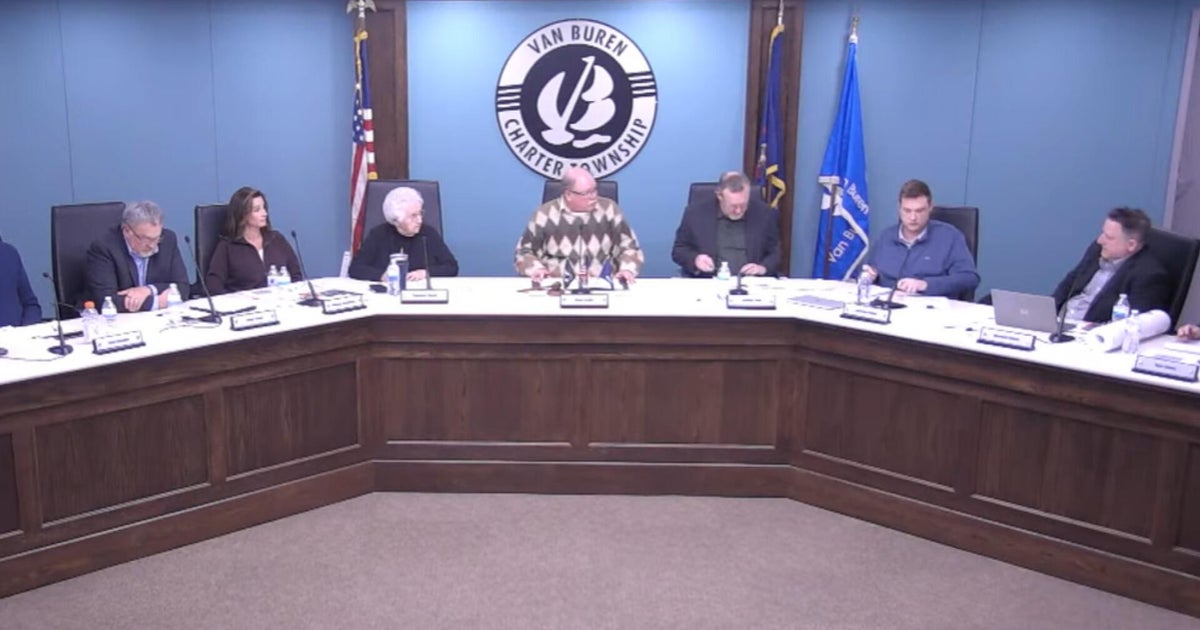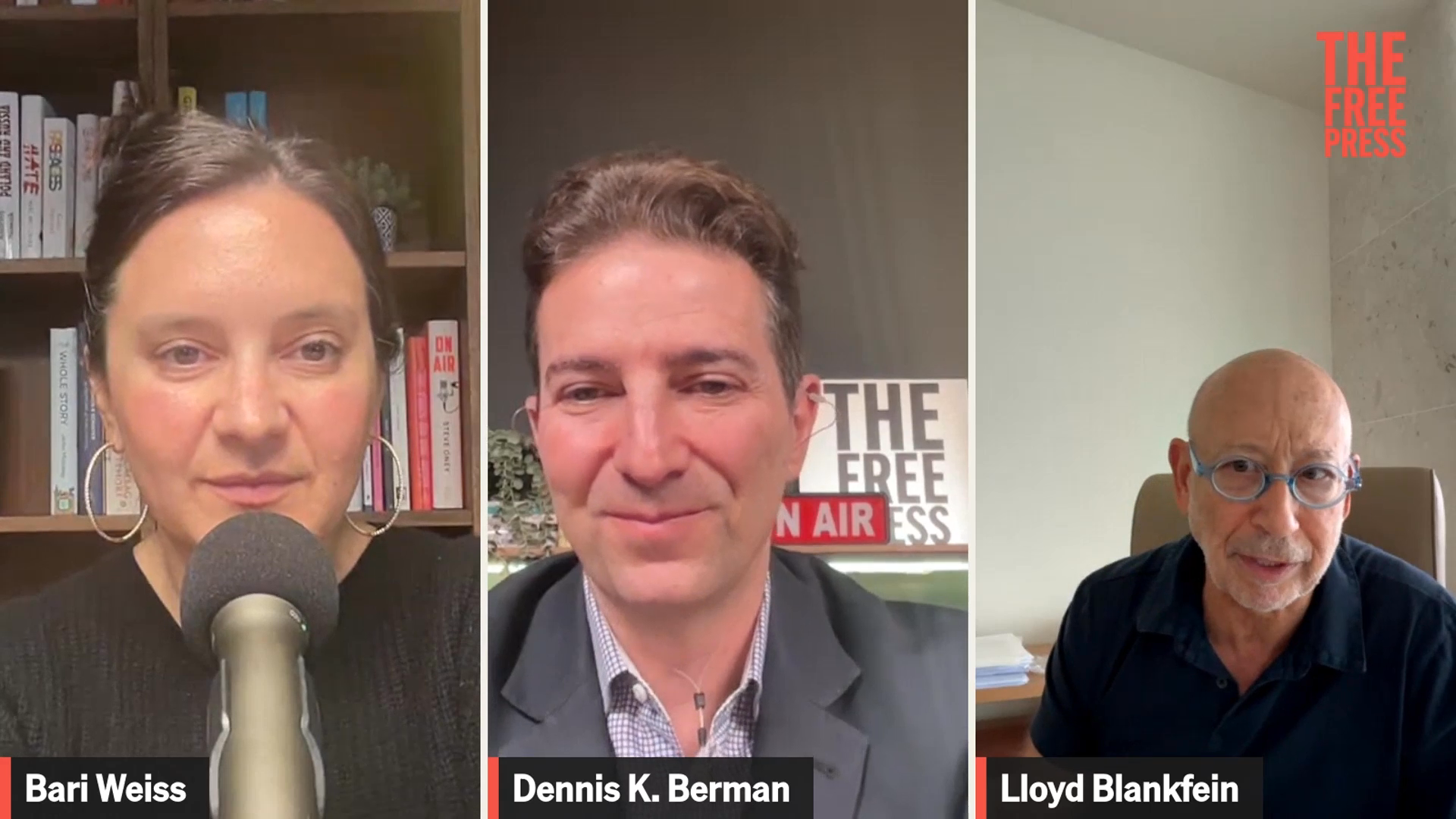Transcript: Tapestry CEO Jide Zeitlin on "Face the Nation," June 21, 2020
The following is a transcript of an interview with Tapestry CEO Jide Zeitlin that aired Sunday, June 21, 2020, on "Face the Nation."
MARGARET BRENNAN: We want to go now to the island of Kauai in Hawaii, where CEO Jide Zeitlin is this morning. He's the head of a Fortune 500 company called Tapestry, Inc. You know them as the parent company of luxury fashion brands Coach, Kate Spade and Stuart Weitzman. Good morning.
TAPESTRY, INC. CEO JIDE ZEITLIN: Good morning, MARGARET.
MARGARET BRENNAN: You know, this week we saw from the Commerce Department this announcement that consumers were spending in May. Retail sales numbers were better than expected. I- I'm wondering what you think is happening with consumers right now.
ZEITLIN: What we see, and we see this around our global businesses, that consumers have remained engaged. Even during a period where all of our brick and mortar stores were closed, they were very engaged digitally with our brands, with our products. And now, as they have the opportunity to engage in a physical way, we see them doing so and doing so enthusiastically. Although it's- it's a slow step-by-step process. So it's not just a return to where things were, but the opportunity to engage physically and digitally is something that we see consumers being enthusiastic to do.
MARGARET BRENNAN: And you're reopening a number of your businesses not just in this country, but also in China, which continues to see these flare ups of COVID-19. I wonder how you're dealing with that sort of start-stop, flare up, pull back. Do you go ahead and rehire people to actually work in stores or are those jobs going to come back at all?
ZEITLIN: Well, we held on longer than most of our peers, and so we did not furlough or lay off employees for quite some time globally and- and particularly here in North America. But what we have seen is that we went from fully shut in Asia to today in China being fully opened, in South Korea being fully open. And that has stayed steady. At the same time, in North America we're gradually opening, but really taking the lead from our store employees, from our consumers, so that we look to avoid both start and stop, but also want to make sure we do it in a way that makes the most sense for our employees.
MARGARET BRENNAN: But the jobs are coming back, you think? It's not all going to be online shopping from here on out?
ZEITLIN: Without a doubt, MARGARET, at least in our- in our case.
MARGARET BRENNAN: OK.
ZEITLIN: We think the consumer is really moving towards a balance, a blend, between digital and physical.
MARGARET BRENNAN: Now, we- we talked about you being the head of one of Fortune 500 companies, one of the largest corporations in the world, that means. And you are one of only four African-Americans in- in that list. There are zero black women on that list among the 37 female leaders. And I wonder what you think the reason is. Why at the highest levels is diversity still a challenge?
ZEITLIN: Yeah, it's an unfortunate reality, and it's a real opportunity. And it's an opportunity really for boards and for management to challenge themselves, to really challenge themselves in terms of both diversity and inclusivity. So you focused in terms of statistics on diversity, and it's clear that we need to better recognize that it's not simply a nice thing, it's a real business imperative to have a diverse number of views around the table. The more you have different life perspectives, different experiences around the table, we develop better products, we develop better solutions as corporations. And it's one of America's great strengths if we get it right. So it's really holding ourselves much more accountable, the same way we hold ourselves accountable for revenue and profit targets to make sure that we are diverse. And then to meet that diversity with a really inclusive environment, one that encourages people to show up fully at work as themselves.
MARGARET BRENNAN: But- but how does- corporations are having to make these decisions on their own. What's the best way to do these things? Is it setting quotas? Is it hiring headhunters and talent scouts to bring in people from the inside? How do you put this into practice?
ZEITLIN: It's holding ourselves accountable for goals in the same way we hold ourselves accountable for revenue and profit metrics. And it is fundamentally believing that this is a business imperative. You know, I noted last week that you had Rob Kaplan on your show, and he made the comment representing the Federal Reserve, the belief that inclusively translates into greater workforce growth, greater productivity growth and greater economic growth. And so we exist within an ecosystem, within an economic ecosystem. The faster that ecosystem is growing because it is more diverse and inclusive, the faster we will grow. So it's a real imperative, and we need to hold ourselves accountable the same way we do against other business metrics.
MARGARET BRENNAN: But when you say business metrics, that means setting quotas? Because I read that you had said, "Diversity by itself doesn't mean a lot until you change the culture of your organization." Those seem like two different things.
ZEITLIN: They are two different things. So it is goals as I- as I think about it. So being very clear that our workforce ought to be- ought to look like the American demographic. And it's not setting goals that are five or 10 years out. It's setting goals that are quite immediate, in the same way as my board holds me accountable for revenue and profit metrics, not five and 10 years out, but this year and next year. That is the diversity piece of it. And then on the inclusivity piece, it's recognizing that you don't change your culture so that if a more diverse workforce comes and they find themselves living in a 1950s culture and in a culture that is not representative of where America is today, you won't keep your people. You won't motivate your people. You won't get the best out of your people. So it's having a culture that- or- or being more inclusive that- that actually encourages people to fully show up as themselves.
MARGARET BRENNAN: All right, Jide, thank you very much for your time and your reflections.
ZEITLIN: Thank you, MARGARET. We'll be back in a moment.



